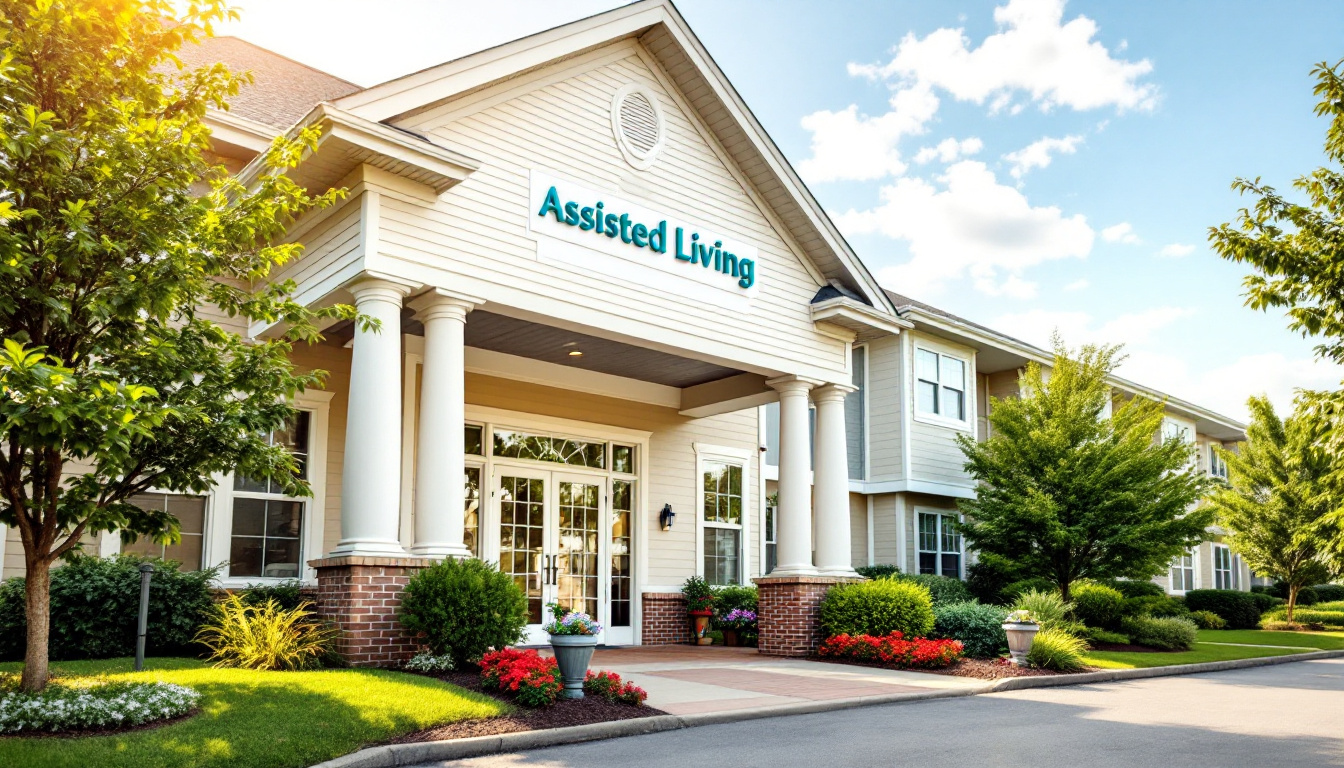How to Support Your Loved One’s Health and Wellness in Senior Care
Empowering Caregivers to Enhance Senior Wellness

Introduction: Understanding the Role of a Caregiver
Caregiving for aging loved ones can be both rewarding and challenging. As caregivers navigate this journey, it is crucial to understand the comprehensive strategies that enhance the health and wellness of seniors in care. This narrative explores key practices that optimize senior health, ensure a supportive environment, and promote the well-being of caregivers themselves.
Creating a Safe and Supportive Environment for Seniors

How can caregivers promote good health and wellness in elderly individuals?
Caregivers play a critical role in enhancing the well-being of seniors. One of the most effective strategies is to encourage social engagement, which helps prevent feelings of isolation and loneliness. This is key since emotional stability greatly impacts mental health. Regular interactions, either through family visits or community activities, can foster social connections.
Additionally, facilitating physical activity is essential. Aiming for at least 150 minutes of moderate-intensity exercise each week can significantly improve overall fitness, balance, and sleep quality. Simple activities like walking, stretching, or even engaging in local fitness classes can make a big difference.
A heart-healthy diet should not be overlooked. Caregivers can assist seniors in meal planning that focuses on nourishing foods, reducing the risk of chronic diseases such as heart disease and diabetes. Emphasizing the intake of vegetables, lean proteins, and whole grains, along with proper hydration, is essential.
Moreover, caregivers must emphasize the importance of regular health check-ups. Proactive monitoring can catch potential health issues early, leading to better treatment outcomes and an improved quality of life for seniors.
Finally, encouraging participation in enjoyable activities like volunteering or learning new hobbies can promote cognitive health and emotional resilience, making the aging experience richer and more fulfilling.
Nurturing Physical and Emotional Health in Senior Care

What are the best strategies to promote health and wellbeing in senior care?
Promoting health and well-being in senior care involves a multifaceted approach centered on person-centered care and promoting independence. Here are some effective strategies:
Regular Physical Activity
Engaging seniors in physical activities is crucial. Simple exercises like walking, chair yoga, or stretching can enhance mobility and significantly improve their physical health. Aim for at least 15 minutes of activity each day to maintain energy levels and boost cardiovascular health.Healthy Diet
A well-balanced diet is essential. Encourage meals that include lean proteins, whole grains, fruits, and vegetables. Furthermore, healthy snacking options should be made accessible. Proper hydration should be a priority, especially for seniors, to prevent fatigue and support overall health.Emotional Support
Providing emotional support is critical. Engage seniors in meaningful conversations and activities to foster a sense of belonging and purpose. Encourage them to participate in community events or hobbies that interest them, as this can dramatically improve their mental health.Utilizing Technology
Introducing technology, such as telehealth services, can empower seniors to manage their health effectively. This can also include using wearable devices to monitor health metrics, thus enhancing safety and independence.Education and Digital Literacy
Training seniors on how to use technology effectively can help them stay connected, which is vital for emotional support. Social connections can prevent feelings of isolation, significantly benefiting their mental well-being.
These strategies collectively aid in enhancing the quality of life for seniors while supporting caregivers in maintaining a balanced caregiving role.
Supporting Social Connections and Cognitive Engagement

How Can Social Activities Benefit Seniors?
Encouraging seniors to participate in social activities is vital for their overall well-being. Regular engagement in community events, fitness classes, or local clubs not only helps them remain physically active but also fosters connections with peers. Common suggestions include:
- Family Visits: Schedule regular visits or calls to maintain bonds.
- Local Senior Centers: Participate in activities like game nights or art classes.
- Volunteering Opportunities: Help seniors find ways to give back to the community through service.
What Role Does Cognitive Health Play?
Engaging in mentally stimulating activities is equally critical for seniors. Activities such as puzzles, learning new skills, or even reading can significantly enhance cognitive function. Strategies include:
- Daily Mental Exercises: Introduce fun games or challenges that encourage thinking.
- Technology Use: Teach seniors to use computers or social media to stay connected.
- Group Classes: Enroll in courses that promote both learning and socialization.
How Can We Prevent Isolation?
Isolation can lead to emotional distress and worsening health conditions in seniors. To mitigate this, caregivers should:
- Encourage Social Plans: Motivate seniors to maintain friendships and reach out to long-lost companions.
- Create Routine Check-Ins: Regular phone calls or virtual chats to break the isolation.
- Community Participation: Help seniors attend events or classes tailored to their interests.
These techniques assist in preventing isolation, while boosting both social and cognitive engagement, ultimately enriching seniors' lives.
Managing Stress and Burnout in Caregiving

What do caregivers need most in their role?
Caregivers often face intense stress and overwhelming demands, making self-care a necessity rather than a luxury. They need a robust support system that includes both emotional support and practical assistance. This support helps them alleviate stress and mitigate feelings of isolation.
Key components of this support system include:
- Listening and Understanding: Caregivers benefit from someone who genuinely cares and offers a non-judgmental ear for their frustrations.
- Tangible Help: Managing daily errands, providing meals, and arranging respite care allows caregivers the crucial time to recharge their energy.
- Work-Life Balance: Caregivers struggle to balance their caregiving role with personal and professional commitments. Access to resources that assist in this balance is essential.
Importance of Self-Care and Stress Management
Incorporating stress management strategies is vital. Techniques like meditation, exercise, and maintaining regular sleep can significantly affect a caregiver's overall well-being. Simple practices such as journaling or engaging in hobbies can also contribute positively.
Encouraging caregivers to take breaks, ask for help, and engage in leisure activities fosters resilience in their caregiving responsibilities. Building routine social connections, whether through family gatherings or support groups, enhances emotional health while decreasing burnout risks.
In summary, caregivers need a combination of emotional support, practical help, and self-care strategies to maintain balance and manage stress effectively. With these systems in place, they can provide better care for their loved ones.
Integrating Technology to Enhance Care for Seniors

Telehealth
Telehealth has revolutionized healthcare accessibility for seniors. Virtual appointments allow them to consult healthcare providers from the comfort of their homes. This reduces the need for travel, making it easier to manage chronic conditions and keep track of medications.
Assistive Technology
Assistive technologies, such as medication reminders and emergency alert systems, play a vital role in enhancing safety and independence for seniors. These tools can help manage day-to-day challenges, from reminding seniors to take their medications on time to alerting caregivers in case of emergencies.
Digital Literacy
Improving digital literacy among seniors is essential for leveraging technology effectively. Providing training on using smartphones, tablets, and computers can foster social connections. This helps them stay engaged with family and friends through video calls or social media, combating feelings of isolation.
| Topic | Benefits | Practical Examples |
|---|---|---|
| Telehealth | Increased access to care | Virtual doctor visits |
| Assistive Technology | Enhanced safety and independence | Medication management apps |
| Digital Literacy | Better engagement and connection | Online classes on technology use |
Effective Communication and Care Coordination
How can caregivers provide effective support to elderly loved ones?
Caregivers can significantly enhance the support they provide to elderly loved ones by establishing clear communication and effective care coordination. This involves liaising between healthcare providers, family members, and the seniors themselves to ensure everyone is on the same page regarding care plans. Regular family meetings can help clarify roles, share updates, and discuss recommendations for their loved one's health.
Engaging Seniors in Care Decisions
Incorporating the elderly in discussions about their care fosters a sense of autonomy and satisfaction. When seniors have a say in their care regimens, they're more likely to adhere to them, leading to improved health outcomes. This can include simple choices, such as activities they enjoy or dietary preferences, that enrich their daily routine.
Keeping the Home Environment Familiar
Keeping care at home when feasible is another way to support elderly loved ones effectively. This familiarity can lead to enhanced comfort and mental well-being. Caregivers can help create a safe home environment by making necessary adjustments, such as installing grab bars or decluttering spaces to minimize hazards.
Utilizing Technology for Better Connection
Staying informed about technology can further aid caregivers in monitoring their loved one's health. Whether through telehealth appointments or using apps for medication management, technology can facilitate communication and ensure that necessary health information is easily accessible.
Prioritizing Caregiver Well-being
Lastly, caregivers must prioritize their own health and well-being. By educating themselves about caregiving practices, managing stress through social support or hobbies, and accepting help when needed, they can maintain their effectiveness in caregiving roles. This balance is essential not only for their mental health but also for providing quality care to their loved ones.
Conclusion: The Journey of Caregiving
Supporting a loved one’s health and wellness in senior care goes beyond basic caregiving tasks—it involves creating a holistic plan that nurtures physical, mental, and emotional health. Caregivers play a critical role in enhancing the quality of life for seniors, requiring dedication, compassion, and continuous learning. By integrating wellness strategies, fostering independence, and maintaining self-care, caregivers can ensure an enriched, fulfilling life for both their loved ones and themselves.
References
- Top Caregiver Tips for Maintaining Health and Well-Being
- The Senior Care Best Practices That Protect Health and Wellness
- Caring for a loved one? Making Your Mental Wellness a Priority is ...
- Care for Your Elderly Loved Ones - Healthy Living - Ambetter Health
- Caregivers: Tips to help your loved one stay socially active - Harvard ...
- A Complete Guide to Caring for an Aging Loved One
- How to Support Your Loved One in an Assisted Living Community
- Help and Support for Family Caregivers - HelpGuide.org
- Celebrating a Season of Support With Caregiver and Senior ...





































































































